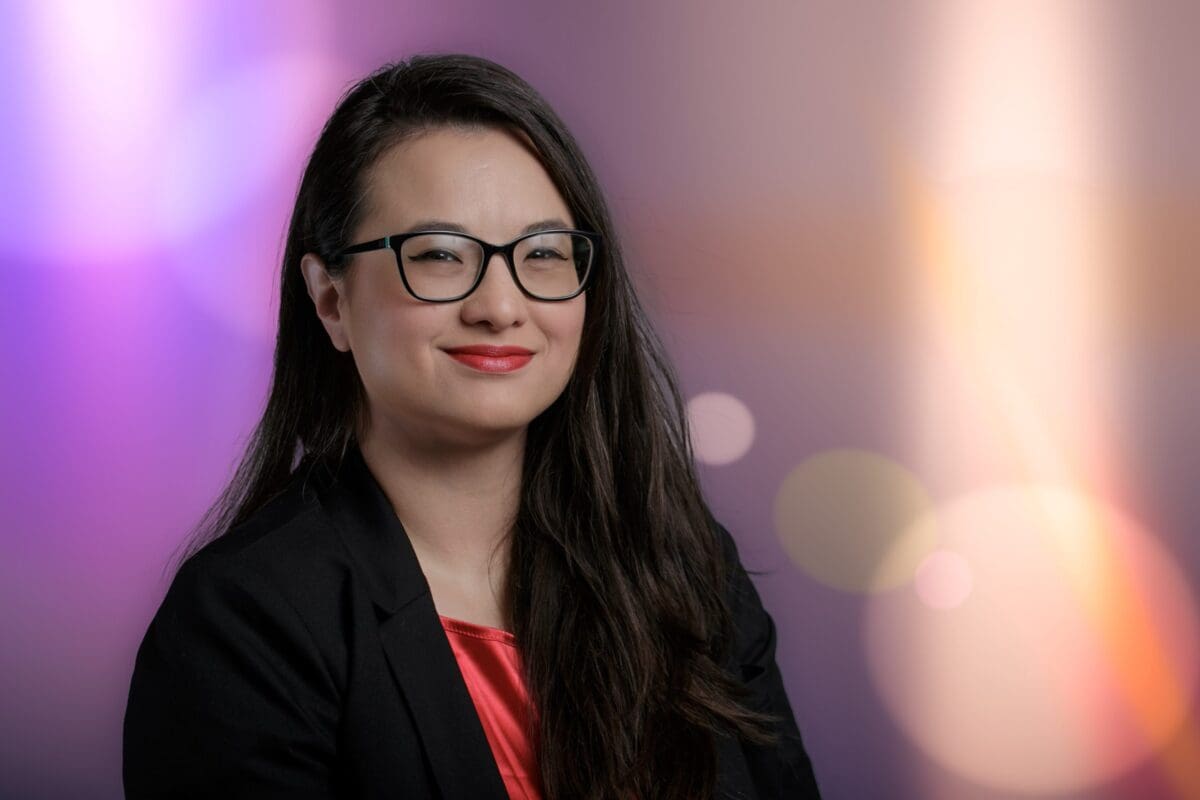Graduating Student Spotlight: Susie Reece

Mental health activist Susie Reece graduated from UA Little Rock with a bachelor’s degree in applied communication. She holds multiple roles and volunteer positions that allow her to improve mental health awareness and access. She uses hard-learned lessons to empower audiences to overcome life’s obstacles.
Tell us a little bit about yourself.
At the age of 10, I relocated from Arlington, Virginia, to Benton, Arkansas. Unfortunately, my father passed away by suicide while he was stationed at Fort Myers, and I was subsequently adopted by his parents. Moving from a bustling urban center like Arlington to Saline County was a significant adjustment for me. In Arlington, I had the opportunity to interact with people from diverse backgrounds, including a close friend from Zaire. However, when I started attending middle school in Benton, I found myself as the sole Asian student in the class. The difference in cultural diversity was a noticeable shock.
Why did you choose UA Little Rock over other universities?
In high school, I was drawn to the idea of pursuing a career in media and communications. However, a friend of mine spoke highly of the Applied Communication department, and I became curious about it. Although my friend had graduated a few years prior, he still felt a strong sense of community and support from the department. I was impressed by the camaraderie and encouragement that the Applied Communication department provided to its students, which piqued my interest. Initially, I considered majoring in psychology, but it didn’t feel like the right fit until I took some courses in applied communication.
Why did you become a mental health advocate?
Coping with the suicide of my father at such a young age was a challenge that I had to face head-on. However, the people around me didn’t fully grasp the impact of the situation. As a result, I decided to become vocal about mental health.
Several years ago, I volunteered in my community and noticed that people still felt uncomfortable discussing mental health. I realized that many people are affected by it, but they tend to withdraw and feel alone because of a lack of understanding. Perhaps this was also true for me. While awareness is a good start, education is essential for proper understanding. Mental health is complex, and it cannot be addressed by individuals alone. It is unfortunate that we remain uneducated about it, unlike other health-related issues such as cancer, which we are more comfortable acknowledging and discussing.
Tell us about some of your volunteer efforts in the community.
This week, I have taken on the responsibility of educating law enforcement officers on mental health issues due to the high risk of suicide in their profession. In addition to this, I serve on several boards throughout the state where I provide guidance and support. I have also facilitated education and training sessions for correctional officers and those who are justice involved.
What were your favorite courses?
All of the Applied Communication courses that I took were enjoyable because of the exceptional professors. Dr. April Chatham-Carpenter’s class on civil discourse was particularly impactful as it taught me valuable skills on how to respectfully disagree with others. Dr. Julien Mirivel’s course on positive communication also left a lasting impression on me.
Who were some of your mentors?
Dr. Rob Gershon, the executive director of Ouachita Behavioral Health and Wellness, Garland County’s mental health center, played a significant role in encouraging me to complete my degree and start my community work. His guidance was instrumental in helping me navigate my career path. When I was 18, I spent a summer interning at CBS. I even had the opportunity to sit in on a live news show in Boston. This experience taught me a great deal about networking and media, and it made me realize that there are many opportunities available beyond my rural Arkansas upbringing.
What is your favorite memory of UA Little Rock?
During the last semester, I received an award and had the opportunity to meet Dr. Carpenter in person. Since I had taken all of my classes online, it was a pleasure to finally meet her face-to-face. When we met, we hugged each other, and although I felt like I knew her, I realized that I didn’t really know her at all. Despite this, our conversation lasted only 30 minutes, but it had a profound impact on my life and work.
Lastly, how can we get our community more involved in issues to address mental health?
In recent times, there is a lot of fear surrounding mental health issues due to the alarming increase in mass shootings involving individuals with such issues. However, it is important to note that 90% of people with mental health issues pose a greater risk to themselves than to others. The root cause of the issue lies in education, and it is a concern that affects all of us at some point in our lives.
